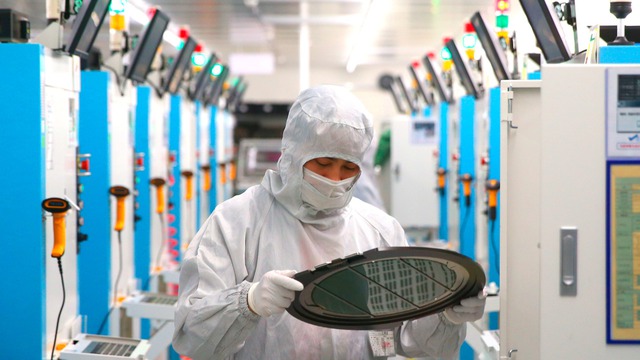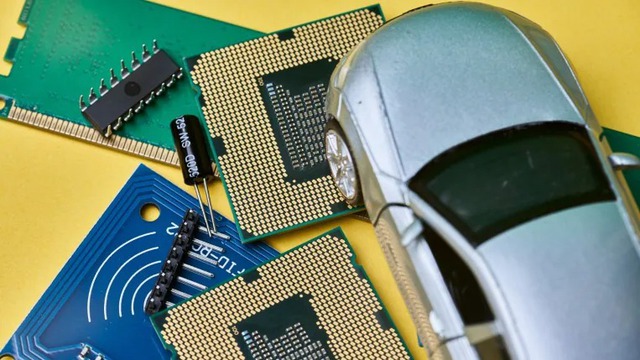Companies are finding their own ways to deal with chip shortages
As of now, the global chip shortage has lasted for two years. And in the absence of a radical solution to the common problem, companies in every industry are doing some unusual tricks to keep their production lines running. Because when semiconductor shortages became the so-called “new normal”, everyone was forced to adapt.
“Despair pervades the market,” Bill Wiseman, a senior partner at consulting firm McKinsey. “If you’re building a $350,000 spectrophotometer and you can’t deliver it because you’re missing $0.50 chips, you’d be pretty much willing to pay anything to get it.”
And McKinsey exploited this sense of urgency by creating a team dedicated to sourcing chips for the companies it consults with. The team has a responsibility to look beyond the conventional supply chain, Wiseman says, and has found the necessary chips in less-thought-out countries like Morocco, the Netherlands and Japan. They were also able to identify chips that might be slightly different from the ones originally expected, but with the same functionality. Of course, manufacturers and brokers can charge high fees for them, and companies have little choice but to accept payment.
“The real chips are out there,” Wiseman said. “It’s just a matter of finding and getting them.”

Many companies are willing to pay any price to get the chips they need.
In some cases, this also means taking seemingly desperate measures. Last month, Peter Wennink, CEO of ASML, the company that makes photolithography, one of the complex devices needed to make advanced computer chips, revealed an example of the problem. . Wennink says a large industrial conglomerate has bought tons of washing machines just to get the chips inside them, for its products.
The chip shortage is basically caused by a number of factors. It includes the rush to buy the electronics needed to work from home amid the pandemic, chip hoarding due to trade tensions between the US and China and disruptions to the flow of components being delivered. globally through complex semiconductor supply chains.
The crisis has highlighted how important semiconductors are to the economy and shows how fragile many supply chains have become. Hard-hit sectors include consumer electronics, LED and lighting devices, energy and automotive. At the beginning of the pandemic, automakers halted production and canceled chip orders, but then demand surged and falling behind in chip order queues led to Auto companies have struggled to catch up.
Many automakers have removed features from vehicles instead of shutting down production lines. Last September, Cadillac said it would remove the hands-free driving feature from some models. In November, Tesla started selling cars without USB ports. And in May this year, Ford said it will ship some models without chips for non-essential features like heating controls, and will ask dealers to add them someday. Future.

Many automakers are cutting product features because of a lack of chips.
Mike Juran, CEO of Altia, a company that makes software that builds interfaces for cars and home appliances, says many companies are rewriting their code to make it work. with different chips, or allow a single chip to do double the work. In some cases, companies are using chips that are up to 10 years old, Juran said.
“They’re swapping chips with what’s available,” he said. “We made them go back to old chips, like the one that was already dusting in the warehouse, nothing advanced, but could solve the same problem.”
And now, the chip crisis is continuing, partly due to new problems. Including the outbreak of the Covid-19 epidemic in China and the crisis in Ukraine, are contributing to the chaos of the supply chain.
But, the crisis is also creating new opportunities for some companies.
Smith & Associates, an electronic components broker, has hired 300 more employees since the pandemic began, up from an initial 500. Mike Hatzell, the company’s chief administrative officer, said people’s wages have risen to an all-time high.
Hatzell adds that while some companies are canceling products, many are doing whatever they can to keep production lines running. Chiplitics, a tech startup, has developed a more efficient way to quickly detect counterfeit chips by sending signals through them. Counterfeit detection is an important issue for brokers and chip manufacturers looking to source chips quickly.
Dan Hutcheson, an analyst at TechInsights, who regularly monitors the chip industry, also said the companies have taken radical measures to address shortages in the past, including harvesting chips from other products. He also warned that shortages could quickly turn into surpluses, as the economy recovers and demand for new products slows. But, he also wondered if the current shortage could have another explanation.
“Someone must be hoarding out there,” Hutchson said. “I think chips are like a new kind of toilet paper.”
Refer to Wired
at Blogtuan.info – Source: genk.vn – Read the original article here

